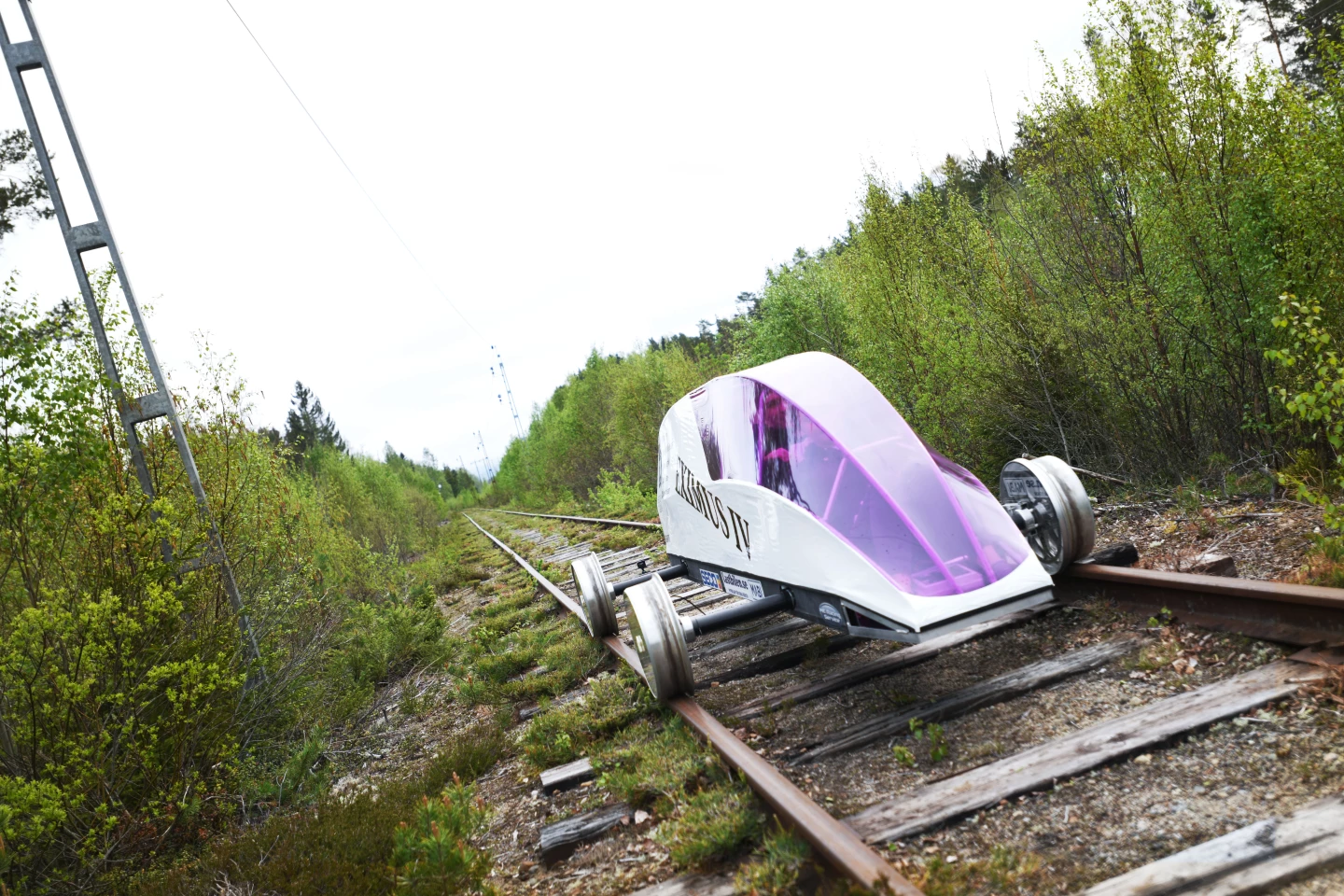Electric vehicles have come a long way in the last decade or so, moving people from A to B with ever-improving efficiency, but none quite match the levels of a student-built railroad car called Eximus IV. The vehicle has taken to the tracks at the annual Delsbo Electric contest for the world’s most energy-efficient vehicles, setting yet another record on its way to yet another title.
Taking place in Sweden, the Delsbo Electric competition tasks students with building ultra-efficient battery-powered electric vehicles for a maximum of six passengers. These are placed on rails to keep rolling resistance to a minimum, and made to cover a 3.36-km (2.1 mile) course using as little energy as possible, which is tallied up in watt-hours and then divided by the number of passengers onboard.
The Eximus team have triumphed in every event they’ve entered since debuting in 2016, and continued to make small efficiency gains with a new record set every year. This began with a 0.84 watt-hour per person per kilometer effort in 2016, with last year’s outing resulting in a record efficiency of 0.603 Wh/person-km.
Delsbo Electric says that all vehicles taking place in the 2020 event are so efficient that they use less energy than the headlights in an ordinary car. But none could quite match it with the Eximus IV, with the reigning champion again outpacing its rivals to post an energy efficiency of 0.517 Wh/person-km.
“In theory Eximus IV can transport a person nearly halfway around the world using the energy contained in just one liter (0.26 gal) of petrol,” says Delsbo Electric's CTO, professor Henrik Rödjegård.

This is a new record for the most energy efficient transportation of a person, but it wasn’t all smooth sailing for the Eximus team. It experienced a spike in consumption during its first lap, which the team’s investigations revealed was due to an 8-mm (0.3-in) gap between the wheels and one spot in the rails. Adjustments to the wheelbase followed and the Eximus IV was back on track for its record-setting run.
The entire track at Delsbo Electric is fitted with advanced measuring equipment that captures data and video twice per second, relaying useful information on the performance of the vehicles. Moving forward, organizers say that extra equipment such as wind and temperature sensors will be added as autonomy becomes a bigger factor in the event, to track how cars respond to changing conditions.
Source: Delsbo Electric





